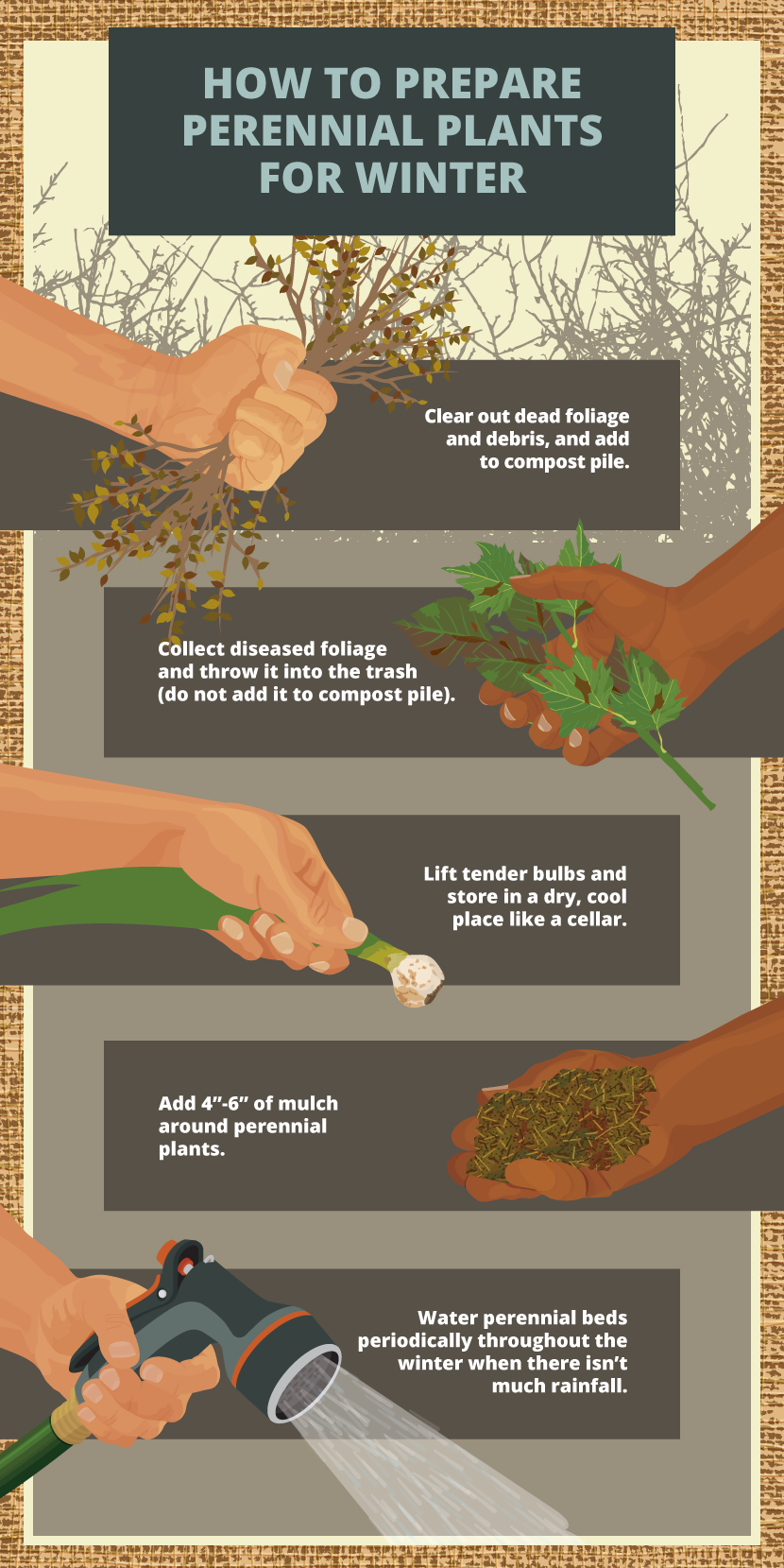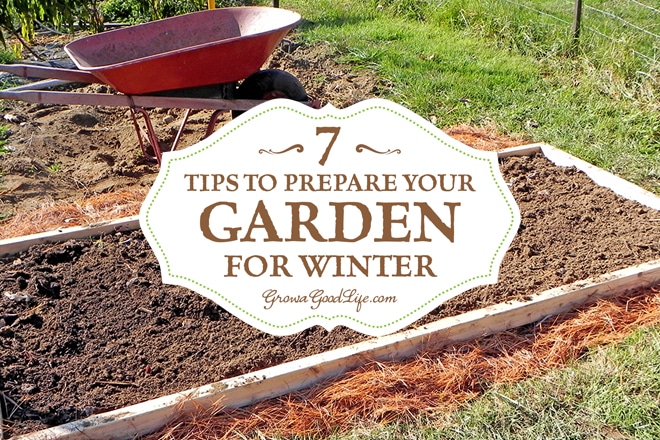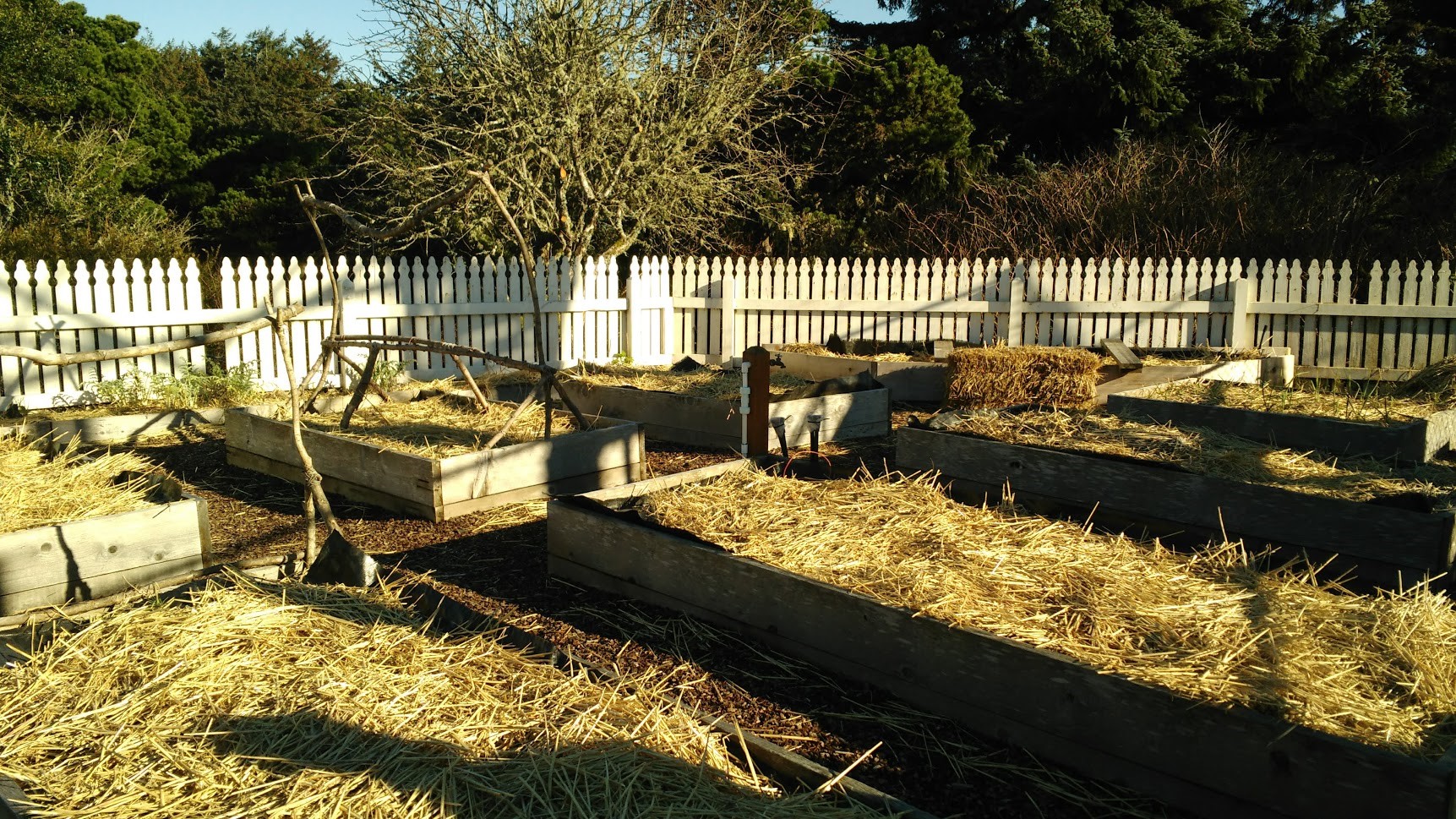Clear your raised beds of dead plants and debris. Add compost and mulch to enrich the soil for winter.
Preparing your raised beds for winter is crucial for maintaining soil health and ensuring a successful spring planting season. Removing dead plants and debris helps prevent pests and diseases. Adding a layer of compost enriches the soil with essential nutrients.
Mulching the beds provides insulation, keeping the soil temperature stable and protecting plant roots from freezing. Covering the beds with a tarp or garden fabric can also prevent soil erosion and weed growth. These steps ensure that your raised beds remain fertile and ready for the next growing season. Proper winter preparation saves time and effort when spring arrives, making your gardening experience more enjoyable.

Credit: dohire.com
Clean Up Debris
As the winter season approaches, it’s essential to prepare your raised beds. Cleaning up debris is a crucial step. It helps maintain a healthy garden. This section will guide you through the process.
Remove Dead Plants
Dead plants can harbor pests and diseases. Remove them carefully. Use a garden fork or spade. Pull out the entire plant, including roots. Dispose of them properly. Composting is not recommended for diseased plants. Burn or trash them instead. This keeps your garden clean and healthy.
Clear Weeds
Weeds compete with your plants for nutrients. Clear them out before winter. Use a hoe or hand-pull them. Focus on removing the roots. This prevents regrowth in spring. Consider using mulch to suppress weeds. Mulch also adds nutrients to the soil. A weed-free bed ensures healthy growth next season.
Below is a simple table to summarize the steps:
| Step | Action | Purpose |
|---|---|---|
| Remove Dead Plants | Pull out plants and roots | Prevent pests and diseases |
| Clear Weeds | Remove weeds and roots | Reduce competition for nutrients |
Remember, cleaning up debris is essential. It helps in maintaining a healthy garden. Follow these steps to ensure your raised beds are ready for winter.
Improve Soil Health
Preparing your raised beds for winter is crucial. One key step is to improve soil health. Healthy soil ensures robust plant growth next season. Let’s explore how to enhance your soil.
Add Compost
Compost enriches soil with essential nutrients. It also improves soil structure and water retention. Spread a layer of compost about 2-3 inches thick over your raised beds.
Use well-rotted compost. Fresh compost can attract pests. Mix the compost into the top 6 inches of soil. This ensures nutrients reach the root zone.
Benefits of Adding Compost:
- Increases soil fertility
- Improves soil texture
- Enhances water retention
Test Soil Ph
Testing soil pH is essential for healthy plants. The pH level affects nutrient availability. Most plants prefer a pH between 6.0 and 7.0.
Use a soil pH test kit. Follow the instructions carefully. If the pH is too high, add sulfur to lower it. If too low, add lime to raise it.
Steps to Test Soil pH:
- Collect soil samples from different areas of the bed.
- Mix the samples together in a clean container.
- Follow the test kit instructions to measure pH.
pH Adjustments:
| pH Level | Action Needed |
|---|---|
| Below 6.0 | Add lime |
| Above 7.0 | Add sulfur |
Mulch The Beds
Preparing your raised beds for winter is essential for a healthy garden. One of the key tasks is to mulch the beds. Mulching helps protect the soil and plants from harsh winter conditions. It also enriches the soil for the next growing season. Let’s dive into how you can effectively mulch your raised beds.
Choose The Right Mulch
Choosing the right mulch is crucial. Different types of mulch serve different purposes. Here are some common options:
| Type of Mulch | Benefits |
|---|---|
| Straw | Insulates soil and prevents weeds |
| Wood Chips | Breaks down slowly, enriching soil |
| Leaf Mulch | Rich in nutrients, excellent for soil health |
| Compost | Provides nutrients and improves soil structure |
Proper Mulching Techniques
Proper mulching techniques ensure your garden beds are well-protected. Follow these simple steps:
- Clear the Beds: Remove weeds and dead plants.
- Water the Soil: Moist soil holds mulch better.
- Apply Mulch Evenly: Spread a 2-3 inch layer of mulch.
- Avoid the Stems: Keep mulch away from plant stems to prevent rot.
Using these tips, your raised beds will be ready for winter. Happy gardening!
Protect Perennials
As winter approaches, it’s crucial to protect your perennial plants. Perennials can be sensitive to cold temperatures. Proper protection ensures they thrive in the next growing season.
Cover With Straw
Covering your perennials with straw helps insulate them. Straw provides a natural barrier against frost. It keeps the soil temperature stable.
Spread a thick layer of straw over the plants. Aim for about 4 to 6 inches. Ensure the straw covers the entire plant base. This traps warmth and moisture.
Here’s a simple table to guide you:
| Step | Description |
|---|---|
| 1 | Gather clean straw |
| 2 | Spread 4 to 6 inches over plants |
| 3 | Ensure full coverage of plant base |
Use Row Covers
Row covers are another excellent option. They protect perennials from harsh winter conditions. These covers act like a blanket for your plants.
Set up row covers over your raised beds. Secure them firmly to the ground. This prevents cold air from seeping in.
Follow these steps to use row covers:
- Choose the right size for your beds.
- Lay the cover over your plants.
- Secure the edges with soil or stakes.
Row covers are reusable. Store them properly after winter for future use.
Protecting perennials ensures a beautiful garden year after year. Follow these tips for a thriving garden come spring.
Watering Tips
Preparing your raised beds for winter involves many tasks. One crucial aspect is proper watering. Watering your raised beds correctly can help protect your plants and soil. Below are some essential tips to ensure your garden thrives even in the coldest months.
Hydrate Before Frost
Before the first frost, ensure your raised beds are well-hydrated. Moist soil retains heat better than dry soil. This can protect your plants from freezing temperatures.
Use a deep watering method to reach the roots. Water early in the day to allow moisture to soak in. This helps the soil to absorb water more efficiently.
Here’s a simple watering schedule:
- Early Morning: Water thoroughly to give the soil time to absorb.
- Evening: Avoid watering to prevent waterlogging overnight.
Avoid Waterlogging
While hydration is essential, avoid waterlogging your raised beds. Overwatering can lead to root rot and other issues.
To prevent waterlogging, ensure your raised beds have good drainage. You can achieve this by:
- Adding Organic Matter: Compost and mulch improve soil structure.
- Elevating Beds: Raised beds naturally drain better than ground-level gardens.
Check the moisture level regularly. Use a moisture meter to keep track.
Here’s a quick guide to check soil moisture:
- Insert a finger or tool into the soil.
- If the top 2 inches are dry, it’s time to water.
- If the soil feels wet, wait a day or two before checking again.
Proper hydration and avoiding waterlogging will help your raised beds endure winter. Follow these tips to keep your garden healthy all season long.

Credit: growagoodlife.com
Pest Control
As winter approaches, protecting your raised beds from pests is crucial. Pests can harm your plants and soil. Taking the right steps now ensures a healthier garden in spring.
Inspect For Pests
Start by checking your raised beds for any signs of pests. Look for holes in leaves, wilting plants, or any unusual spots.
- Aphids: Small green or black insects on leaves.
- Slugs: Slimy trails on soil or plants.
- Caterpillars: Chewed leaves and droppings.
Use a magnifying glass to inspect the soil and plants. Catching pests early can save your garden.
Apply Organic Treatments
Once you’ve identified pests, use organic treatments to get rid of them. Organic solutions are safe for your plants and the environment.
- Neem Oil: Effective against aphids and caterpillars.
- Diatomaceous Earth: Works well for slugs and beetles.
- Garlic Spray: Repels various insects.
Mix these treatments as per the instructions. Apply them in the early morning or late evening.
| Pest | Organic Treatment | Application |
|---|---|---|
| Aphids | Neem Oil | Spray on leaves |
| Slugs | Diatomaceous Earth | Sprinkle on soil |
| Caterpillars | Neem Oil | Spray on leaves |
Regular application is key. Repeat every week until pests are gone.
Plan For Next Season
As the gardening season draws to a close, it’s time to plan for next season. Proper planning helps ensure a bountiful harvest and healthy soil. By taking a few steps now, your raised beds will be ready to burst with life once spring arrives.
Rotate Crops
Crop rotation is key to maintaining soil health. It helps prevent disease and pest buildup. Different plants have different nutrient needs and pest issues. Rotating crops can break pest cycles and reduce soil depletion.
Here’s a simple crop rotation guide for your raised beds:
| Year | Crop Group |
|---|---|
| 1 | Leafy Greens |
| 2 | Root Vegetables |
| 3 | Legumes |
| 4 | Fruit Crops |
After harvesting, clear out old plants. Add compost to replenish nutrients. Plan to plant different crops in each bed next year.
Make Notes
Documenting your garden’s performance is essential. Keep a garden journal to track what worked and what didn’t.
Here are some points to note:
- Which crops grew well?
- Which plants struggled?
- Any pest problems?
- Soil conditions and amendments used.
This information will guide your future planting decisions. It helps you avoid repeating mistakes. It also helps you build on successes.
Tools And Maintenance
Preparing your raised beds for winter requires the right tools and maintenance. Ensuring your tools and equipment are clean and stored properly is key. This not only extends their lifespan but also makes your spring preparations easier.
Clean Gardening Tools
Before storing your gardening tools for winter, clean them thoroughly. Mud and debris can cause rust and wear out your tools faster. Follow these steps to clean your tools effectively:
- Remove soil with a stiff brush.
- Soak tools in soapy water for 15 minutes.
- Rinse and dry them with a cloth.
- Use a metal file to sharpen blades.
- Apply a light coat of oil to prevent rust.
Cleaning your tools ensures they remain effective and last longer.
Store Equipment Properly
Proper storage of gardening tools prevents damage and makes them last longer. Follow these guidelines to store your equipment:
- Keep tools in a dry place to avoid rust.
- Hang larger tools like rakes and shovels on hooks.
- Store smaller tools in a toolbox or bucket.
- Drain fuel from gas-powered equipment.
- Remove batteries from electric tools.
Use this table for quick reference on where to store specific tools:
| Tool | Storage Location |
|---|---|
| Rakes and Shovels | Hooks on the wall |
| Small Hand Tools | Toolbox or bucket |
| Gas-Powered Equipment | Dry, ventilated area |
| Electric Tools | Shelf, with batteries removed |
Taking care of your tools and storing them properly saves you time and money. It’s a simple step that makes a big difference.

Credit: livesmartcolorado.colostate.edu
Frequently Asked Questions
How Do I Clean My Raised Beds For Winter?
To clean your raised beds, remove all plant debris and weeds. Dispose of diseased plants. Add compost to enrich the soil.
Should I Cover My Raised Beds For Winter?
Yes, covering raised beds with mulch or a tarp helps protect the soil. It prevents erosion and nutrient loss.
What Type Of Mulch Is Best For Winter?
Organic mulches like straw, leaves, or wood chips are ideal. They break down over time, adding nutrients to the soil.
How Can I Improve Soil Health In Winter?
Add compost or well-rotted manure to your raised beds. This enriches the soil and prepares it for spring planting.
Conclusion
Winterizing your raised beds ensures healthy soil and plants for spring. Clean, mulch, and cover them properly. These steps protect your garden from harsh weather. Your efforts now guarantee a thriving garden next season. Start early and enjoy the rewards of a well-prepared raised bed.
Happy gardening!
